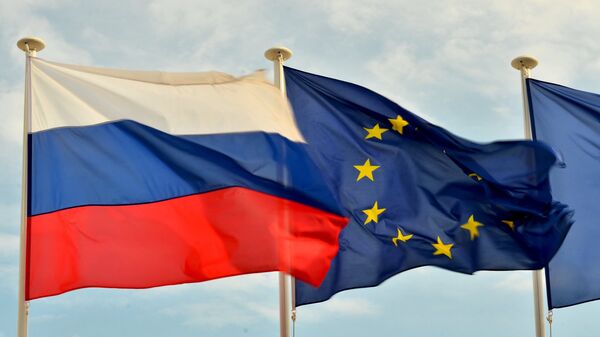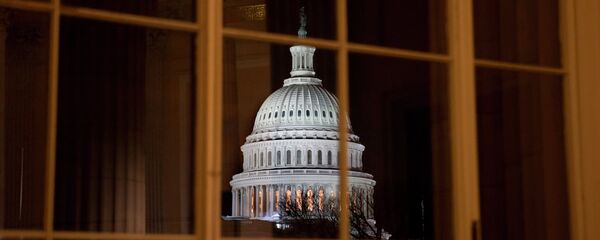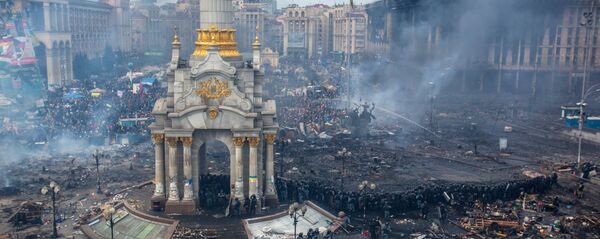Hot on the heels of the US Senate's initiative to tighten anti-Russian sanctions, the EU is rumored to be planning more sanctions against Russia. Political analyst Alessandro Bertoldi, formerly of the Forza Italia party, told Sputnik Italia that such a move would obstruct dialogue and cooperation between Russia and Europe at a crucial moment.
"We have leaks from the European Parliament confirming that the EU leadership is planning to toughen its policy toward Russia," Bertoldi said.
"Secondly, to increase the military budget of the EU member states to 2 percent of GDP, that is, to increase it by €100 billion ($112 billion). Of course, this is necessary to combat terrorism, but more and more often, Russia is being equated with terrorism."
For example, in November the European Parliament shocked observers when it passed a resolution on "anti-EU propaganda" which equated news from Russian media outlets such as Sputnik and RT with propaganda from terrorist groups such as Daesh and al-Qaeda.
"The third element I would like to point out is the aattempted destabilization of Russia through support for the opposition, or as they say in the EU, 'civil society,'" Bertoldi said.
"These are three serious strategies which don't provide an opportunity for a dialogue. Of course, not everyone will like this option, but there are a lot of movements within the EU which advocate a dialogue with Moscow and cooperation in the fight against the real threat – Islamist terrorism. It is a big mistake to wage a cold war with each other."
US Congress is also conducting a probe into alleged ties between the Trump campaign team and Russia, which has so far failed to yield any evidence of the Kremlin's alleged influence on the US presidential elections last November.
Russian officials have repeatedly denied charges of interfering in the US elections, saying the allegations are absurd and represent an attempt to divert the US public’s attention from revealed instances corruption as well as other pressing domestic issues.
Bertoldi said that the allegations of Russian interference are an attempt to discredit the new US President as well as Russia's foreign policy objectives.
"On the one hand, [the allegations and sanctions] attempt to establish political and military superiority, and on the other to shape events in other parts of the world, such as in Syria and Ukraine. They are using the Cold War to do this, but as we see, this doesn't lead to anything, there are no winners."
"A clash between Europe, Russia and the United States won't lead to anything good. It will lead only to deterioration in diplomatic relations, which then need to be restored. This is damaging to all our economies, above all Italy's," the analyst said.
The EU, US and a handful of their allies first imposed sanctions against Russia in March 2014, following Crimea's decision to rejoin with Russia in the aftermath of Kiev's Euromaidan coup d'etat. Moscow, in turn, put in place a food embargo on a wide range of products originating in the countries which had targeted Russia with sanctions.
On Thursday, Russian President Vladimir Putin commented on anti-Russian sanctions during his annual Direct Line question and answer session. He called sanctions a "double-edged sword" that has inflicted harmed on all sides.
"The UN says we lost about $50 billion-$52 billion, and the countries that introduced sanctions lost $100 billion. So, it is a double-edged sword and it damages everyone, including those who use it," Putin said.




